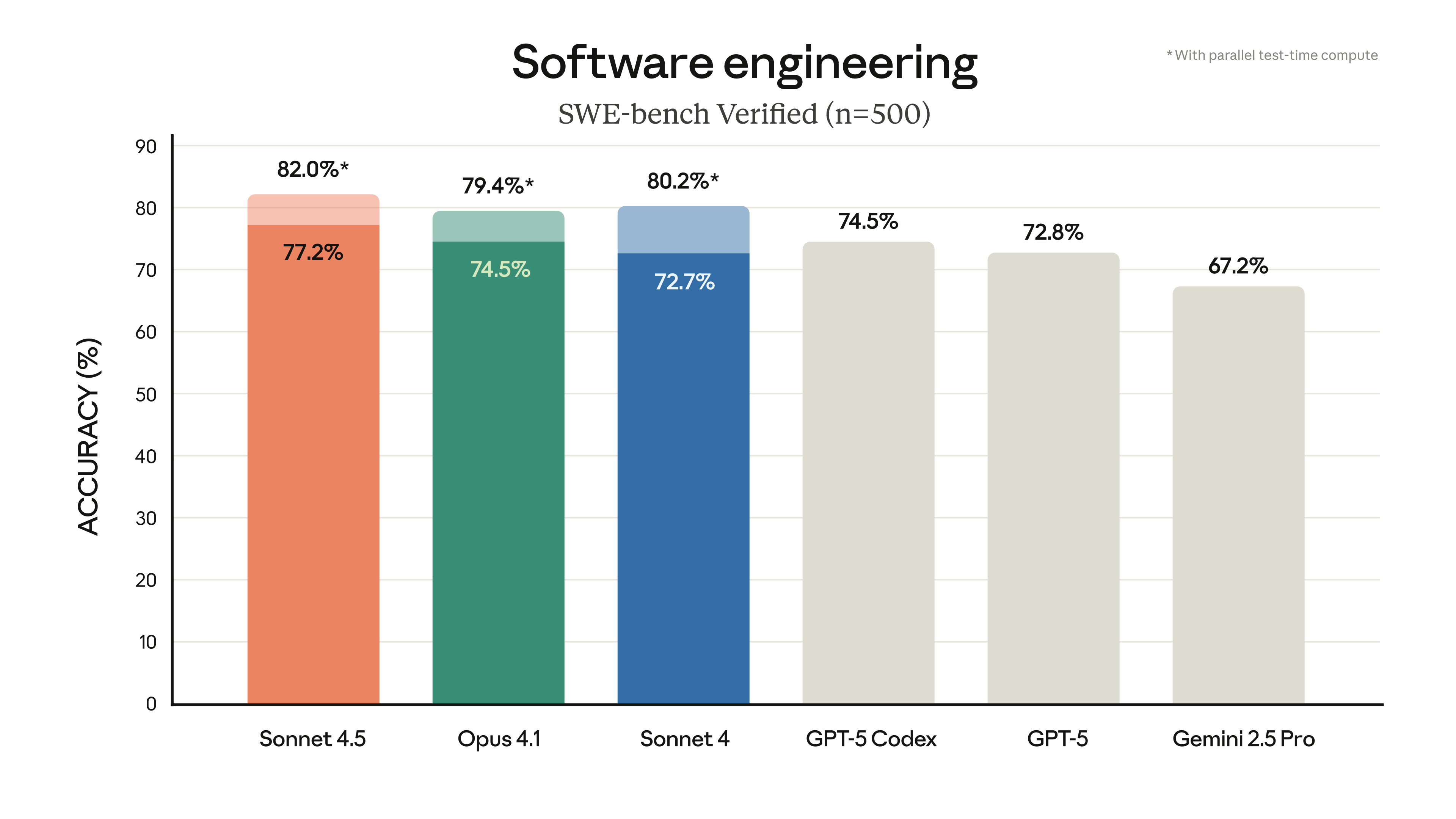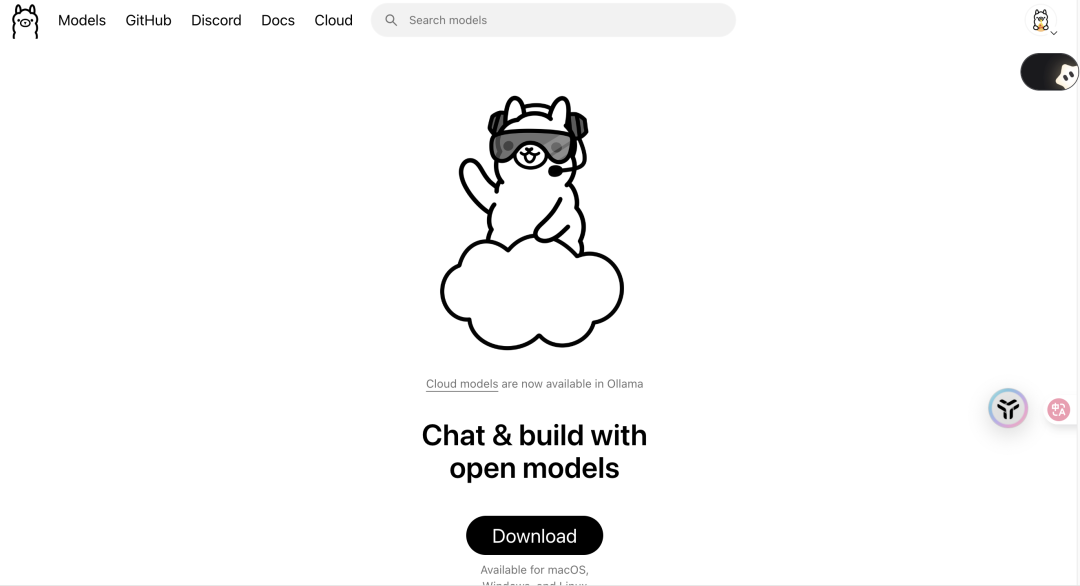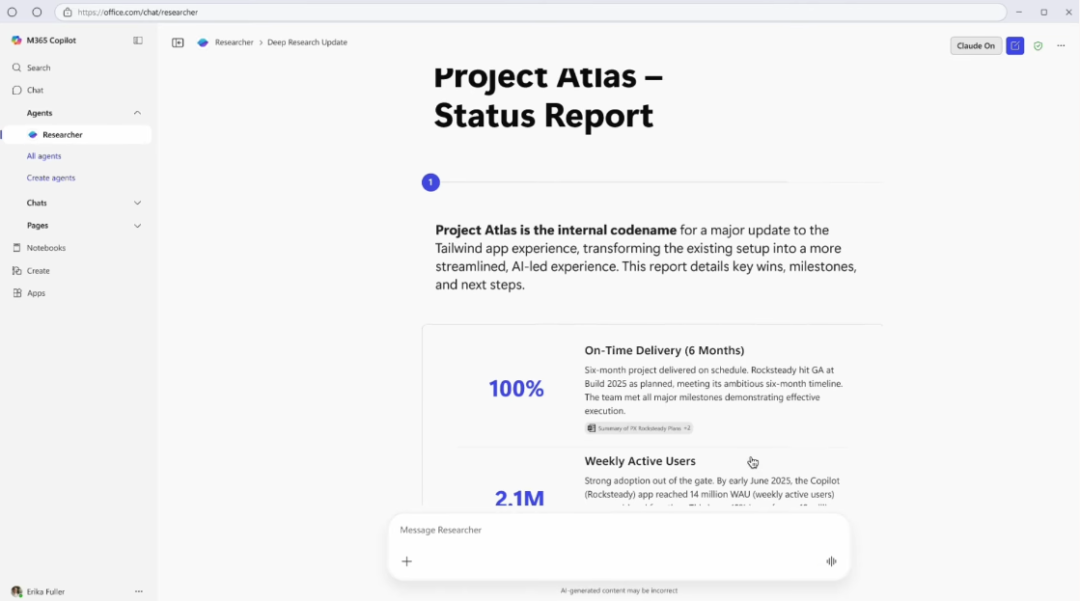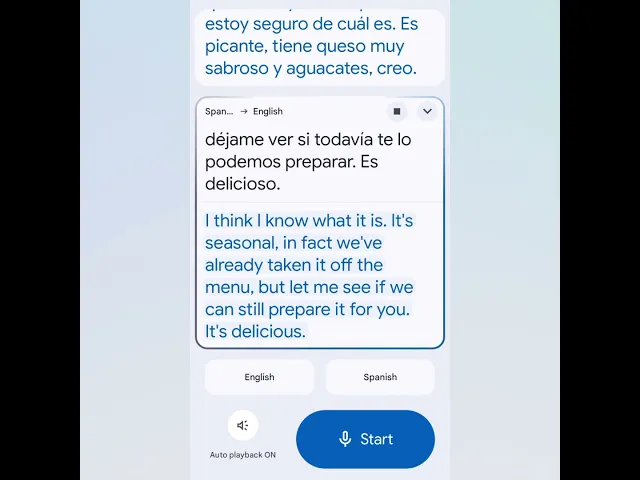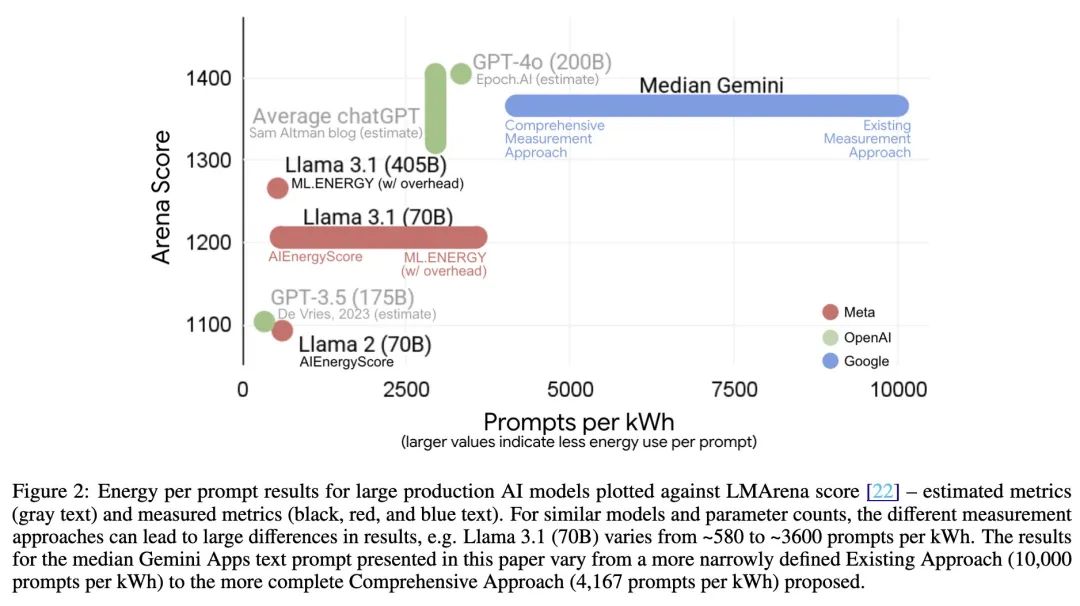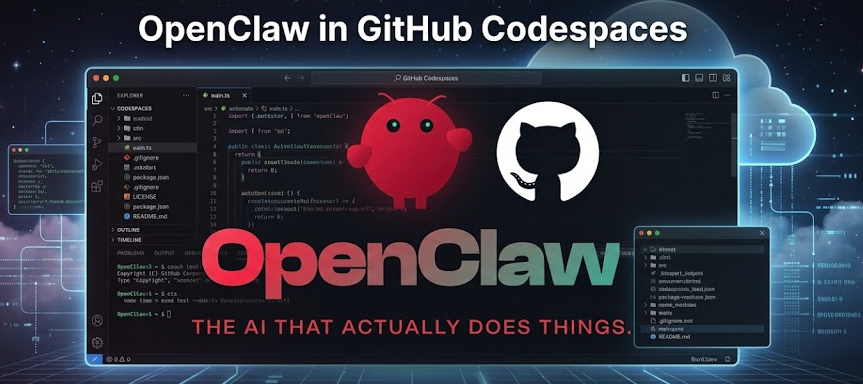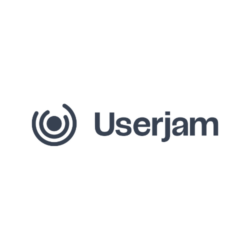AliCloud recently released its latest machine translation model, Qwen-MT, which is based on its Qwen3 series of large language model development, and open to developers and enterprise users through API (qwen-mt-turbo). Unlike the route of pursuing the scale of model parameters, Qwen-MT adopts a lightweight MoE (Mixture of Experts) architecture, which intends to provide the market with a solution that strikes a balance between translation quality, responsiveness, and invocation cost.
Core highlights: performance, cost and controllability
The core features of the Qwen-MT are in three main areas:
- Extensive language supportThe model supports translation from and to 92 languages and important dialects, covering Indo-European, Sino-Tibetan, Asian-African, South Island and other language families, and is claimed to be able to serve more than 95% of the world's population.
- Low Latency and Low Cost: Thanks to the MoE architecture, the model does not need to call all the parameters when processing translation tasks, thus enabling faster inference. The official API price is per million outputs token As low as RMB 2, this pricing strategy gives it a significant cost advantage in scenarios where large-scale, highly concurrent translation requests need to be handled.
- Controllability in specialized scenariosQwen-MT provides advanced features such as terminology intervention, domain hints, and translation memories in addition to basic translation features. Users can customize prompt words to guide the model to generate more accurate and compliant translations in specific industries (e.g. legal, financial, medical) or complex contexts.
Performance evaluation: benchmarking against mainstream models
According to the automatic and manual evaluation data published by Aliyun, Qwen-MT's translation performance is noteworthy.
In the automatic evaluation session, the test results covering Chinese-English, English-German multi-domain translation and WMT24 multi-language translation tasks show that Qwen-MT outperforms GPT-4.1-mini, Gemini-2.5-Flash and other large-scale models. Meanwhile, its translation results are said to be comparable to the top large models such as GPT-4.1 and Gemini-2.5-Pro.
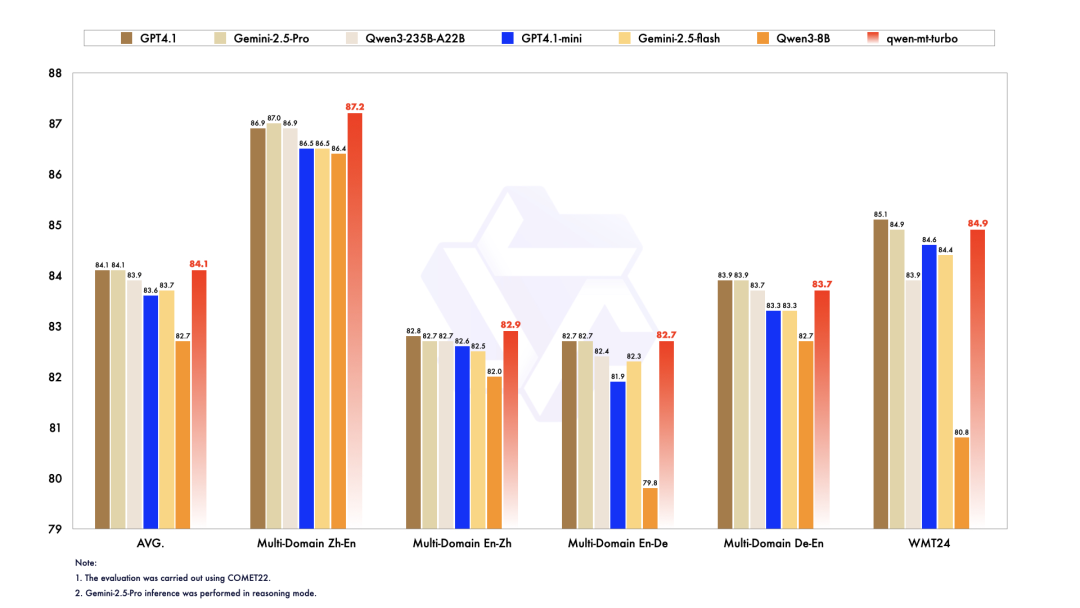
Considering the limitations of automatic evaluation, the company also organized manual evaluation based on real application scenarios for ten major languages, including Chinese, English, Japanese and Korean. The evaluation results showed that in the independent scoring conducted by professional translators, Qwen-MT showed obvious advantages in both the "pass rate" and "good rate" of translation results.
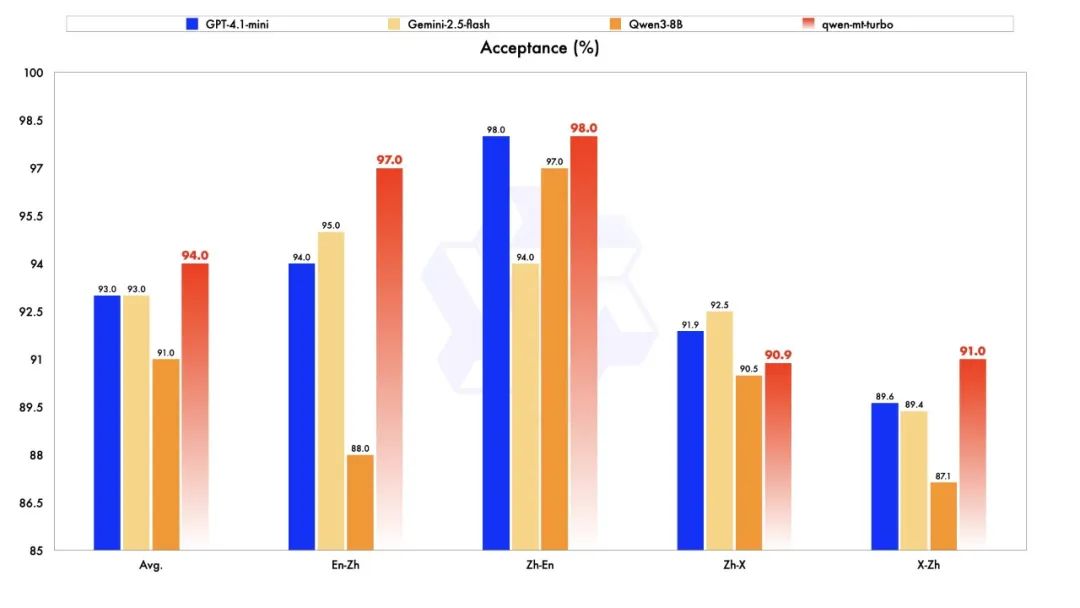
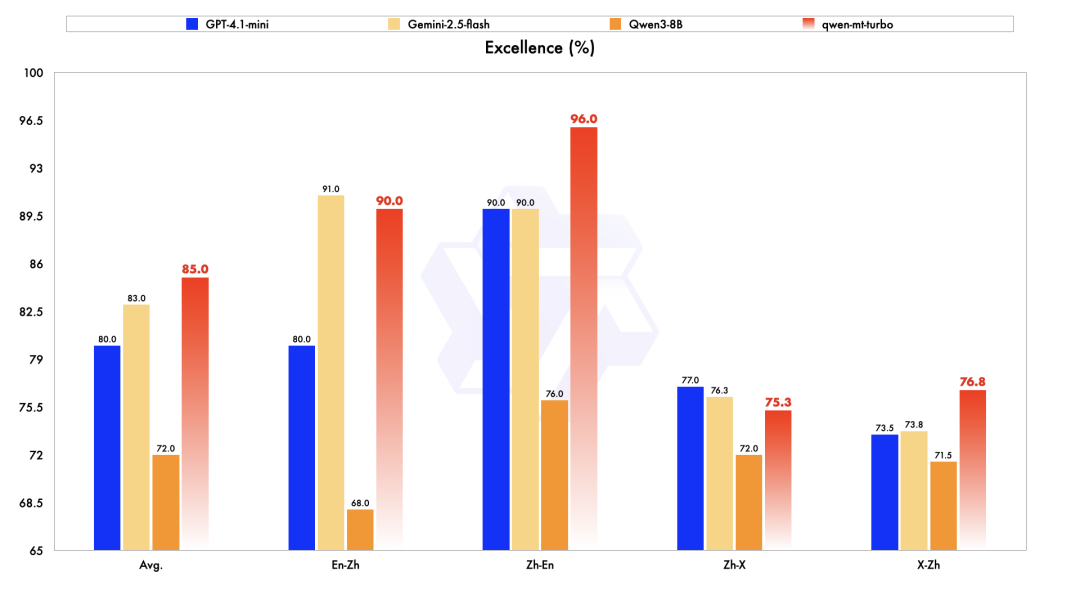
Translation Sample Analysis: Ability to Handle Spoken Language, Internet Terms and Ancient Texts
Sample translations are provided to demonstrate Qwen-MT's ability to handle different language styles and cultural backgrounds.
Dealing with colloquialisms and informal expressions:
- original text:
Make your cubicle neat, tidy and make it a homey charm. - translations: make yourpartitionedNeat and organized, creatingWarm and cozyThe atmosphere.
- original text:
Little study hack for y’all… - translations: Toinfluential familyA little learningfinesse……
Dealing with Internet buzzwords and slang:
- original text: As an Internet companymove elsewhere (esp. labor market)representations, using the results to derive their own arguments, reallyhave nothing better to do,a genius in retrospectJust don't analyze it so much.
- translations:
As a representation of **working hard** at an internet company, it's really **annoying** to use results to deduce one's own arguments. Don't overanalyze things after the fact **like a hindsight expert**.
Dealing with culturally specific vocabulary:
- original text:
Kim also attended her ex's first Donda listening party... - translations:Kim Kardashianalso attended her ex-boyfriend's first "Donda" album show at Mercedes-Benz Stadium in Atlanta on July 22ndaudition。
- original text: Continental Enterprises Produces 3A game Black Myth: GokusufferinsularSought after and acclaimed by youth and game enthusiasts...Taken from **The Journey to the West**...After all, everyone is reading theThe Four Masterpieces** Grew up Chinese.
- translations:
The **3A game "Black Myth: Wukong"** produced by a mainland company, has been enthusiastically embraced and highly praised by young people and gaming enthusiasts **in Taiwan**...it draws inspiration from the story and characters of "**Journey to the West**"...after all, they are all Chinese who grew up reading the Four Great Classical Novels.
Dealing with ancient texts:
- original textThe Qin wanted the jade, but the Zhao did not give it to him, and there was nothing crooked about it. If Qin wanted to enter the city and Qin did not give it to him, it was in Qin's favor; if Qin left the city and the biscuits were returned, it was in Zhao's favor.
- translations:
Moreover, if Qin desires the jade, and Zhao refuses to give it, neither side is at fault. If Zhao gives the jade but Qin does not provide the city, the fault lies with Qin; if Qin provides the city but the jade returns to Zhao, the fault lies with Zhao.
These cases show that the model not only performs literal translation, but also understands and transforms the context, cultural connotations, and linguistic style of the original text to a certain extent, which is crucial for generating high-quality, natural translations.
List of supported languages
| language family | language type (in a classification) |
|---|---|
| Indo-European family of languages | Afrikaans, Armenian, Assamese, Asturian, Belarusian, Bengali, Bosnian, Bulgarian, Catalan, Croatian, Czech, Danish, Dutch, English, French, Galician, German, Greek, Gujarati, Hindi, Icelandic, Italian, Latvian, Lithuanian, Luxembourgish, Macedonian, Magyar, Marathi, Mesopotamian Arabic, Nepali, Written Norwegian, New Norwegian, Ocian, Oriya, Polish, Portuguese, Romanian, Russian, Polish, Portuguese, Russian, and other languages. Macedonian, Magahi, Marathi, Mesopotamian Arabic, Nepali, Written Norwegian, New Norwegian, Auk, Oriya, Polish, Portuguese, Romanian, Russian, Serbian, Sicilian, Sindhi, Sinhalese, Slovak, Slovenian, Spanish, Swedish, Tuscan Albanian, Ukrainian, Urdu, Venetian, Welsh, Persian. Venetian, Welsh, Persian |
| Sino-Tibetan language family | Chinese (Cantonese, Simplified, Traditional), Burmese |
| Afro-Asian language family | Arabic (Standard, Egyptian, Mesopotamian, Moroccan, Nezhi, Northern Levant, Southern Levant, Taiz Aden, Tunisian), Hebrew, Maltese |
| Austronesian | Cebuano, Bahasa Indonesia, Javanese, Malay, Bunasinan, Tagalog, Valay |
| Dravidian (general term for South Indian people and languages) | Kannada, Tamil, Telugu |
| Turkic language family | Kazakh, Northern Azerbaijani, Northern Uzbek, Turkish |
| Zhuang-Dong language family | Thai, Lao |
| Uralic language family | Estonian, Finnish, Hungarian |
| South Asian family of languages | Khmer, Vietnamese |
| Other language families | Basque, Georgian, Japanese, Korean, Kiswahili |
API Call Methods
The developer can make this work by being compatible with the OpenAI API format, the following are a few officially provided Python Example.
Basic translation:
import os
from openai import OpenAI
client = OpenAI(
api_key=os.getenv("DASHSCOPE_API_KEY"),
base_url="https://dashscope.aliyuncs.com/compatible-mode/v1",
)
messages = [
{
"role": "user",
"content": "我看到这个视频后没有笑"
}
]
translation_options = {
"source_lang": "auto",
"target_lang": "English"
}
completion = client.chat.completions.create(
model="qwen-mt-turbo",
messages=messages,
extra_body={
"translation_options": translation_options
}
)
print(completion.choices.message.content)
Use of terminology intervention:
For translations in specialized areas of terms Translation results for parameterized preset terminology to ensure the accuracy of specialized vocabulary.
import os
from openai import OpenAI
client = OpenAI(
api_key=os.getenv("DASHSCOPE_API_KEY"),
base_url="https://dashscope.aliyuncs.com/compatible-mode/v1",
)
messages = [
{
"role": "user",
"content": "而这套生物传感器运用了石墨烯这种新型材料,它的目标物是化学元素,敏锐的“嗅觉”让它能更深度、准确地体现身体健康状况。"
}
]
translation_options = {
"source_lang": "Chinese",
"target_lang": "English",
"terms": [
{
"source": "生物传感器",
"target": "biological sensor"
},
{
"source": "石墨烯",
"target": "graphene"
},
{
"source": "化学元素",
"target": "chemical elements"
},
{
"source": "身体健康状况",
"target": "health status of the body"
}
]
}
completion = client.chat.completions.create(
model="qwen-mt-turbo",
messages=messages,
extra_body={
"translation_options": translation_options
}
)
print(completion.choices.message.content)
# 预期输出:
# This biological sensor uses graphene, a new material, and its target is chemical elements. Its sensitive "nose" can more deeply and accurately reflect the health status of the body.
Specify the domain and style:
pass (a bill or inspection etc) domains Parameters can provide natural language cues that guide the model to adopt a domain-specific style of writing for translation.
import os
from openai import OpenAI
client = OpenAI(
api_key=os.getenv("DASHSCOPE_API_KEY"),
base_url="https://dashscope.aliyuncs.com/compatible-mode/v1",
)
messages = [
{
"role": "user",
"content": "第二个SELECT语句返回一个数字,表示在没有LIMIT子句的情况下,第一个SELECT语句返回了多少行。"
}
]
translation_options = {
"source_lang": "Chinese",
"target_lang": "English",
"domains": "The sentence is from Ali Cloud IT domain. It mainly involves computer-related software development and usage methods, including many terms related to computer software and hardware. Pay attention to professional troubleshooting terminologies and sentence patterns when translating. Translate into this IT domain style."
}
completion = client.chat.completions.create(
model="qwen-mt-turbo",
messages=messages,
extra_body={
"translation_options": translation_options
}
)
print(completion.choices.message.content)
# 预期输出:
# The second SELECT statement returns a number that indicates how many rows were returned by the first SELECT statement without LIMIT clause.


